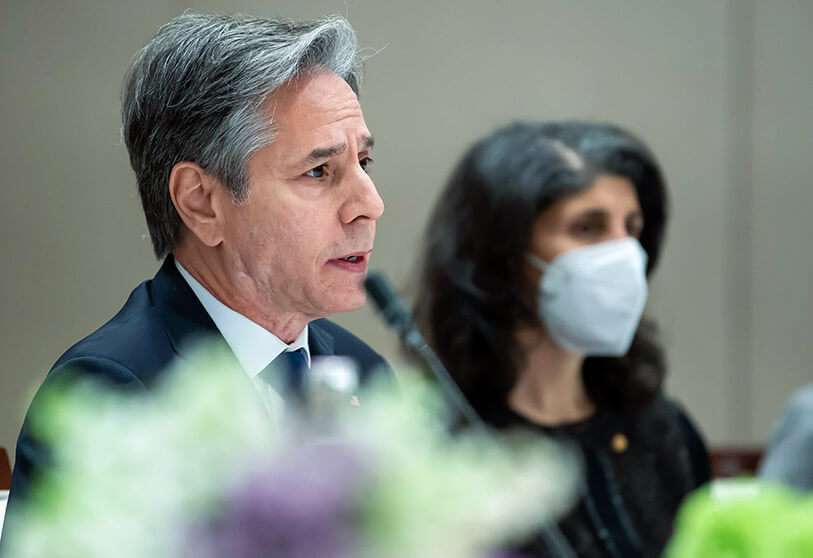US to respond in writing to Russia's demands next week

After establishing a common front in Europe against Russia, US Secretary of State Antony Blinken is wrapping up his trip across the continent in Geneva, where he met with Russian Foreign Minister Sergey Lavrov.
According to the head of Russian diplomacy, it was a "professional meeting" in which Blinken expressed his satisfaction with the exchange of positions. The Secretary of State informed his Russian counterpart that Washington will respond in writing to Russia's demands next week. Blinken re-emphasised the deployment of Russian troops on the Ukrainian border and demanded a de-escalation from Moscow.
"Russia has sent 100,000 troops to the Ukrainian border. If Putin wanted to, he could attack Ukraine from the south, east and north," the diplomat warned. Should this happen, Blinken assured that his country is committed to a "united, swift and stern response". "We are at a critical juncture," he warned.

In addition, taking advantage of the meeting in Geneva, the American diplomat called on Moscow to release two US citizens detained in Russia. One of them, Paul Whelan, was accused of espionage and sentenced to 16 years in prison, while Trevor Reed is serving a nine-year sentence for "endangering the lives of two policemen in Moscow while drunk", according to Reuters.
Lavrov accused the West of "promoting hysteria" over the situation in Eastern Europe, and reiterated that Russia "has no plans to attack Ukraine". This "hysteria", in the words of the Russian minister, "seeks to sabotage the Minsk agreements".
As Blinken referred to Russian troops on the Ukrainian border, Lavrov also alluded to NATO's military operations on the continent. He claimed that the Atlantic Alliance's current goal is to work against Russia and "foment Russophobia". In this regard, Lavrov claimed that NATO "fuels extremism" against Russia in places such as Poland and the Baltic states. "It is the Russophobic minority that runs not only NATO, but also the European Union", the Russian diplomat stressed.

The Russian minister also alluded to US arming of Ukraine during the press conference. "NATO sees Ukraine as a zone of influence," he concluded.
"We do not expect progress from the meeting with Blinken, we expect answers," said Lavrov, according to RT. The Russian minister re-emphasised Moscow's security demands made a few weeks ago. Among these demands is the withdrawal of NATO troops from all countries bordering Russia. The Russian government has also demanded that NATO stop expanding towards its borders.
In the event that NATO does not respond to these requests, Moscow "could neither confirm nor exclude the possibility of establishing a military infrastructure in Cuba and Venezuela", Russian Deputy Foreign Minister Sergei Ryabkov said on Russian television. Both countries are located in Washington's sphere of influence, the so-called US 'backyard'.

NATO's eastward expansion was also one of the issues highlighted at the summit between the Alliance Council and Russia. "The freedom to choose ways to ensure one's security must not be implemented in a way that infringes on the legitimate security interests of others," Russian Deputy Foreign Minister Alexander Grushko told his US counterparts.
Before the meeting, Blinken said he did not expect to resolve differences, but that the meeting would be "part of the effort to de-escalate tensions". NATO has so far rejected Russia's demands, arguing that no outside country has the right to decide who can join the Alliance.








